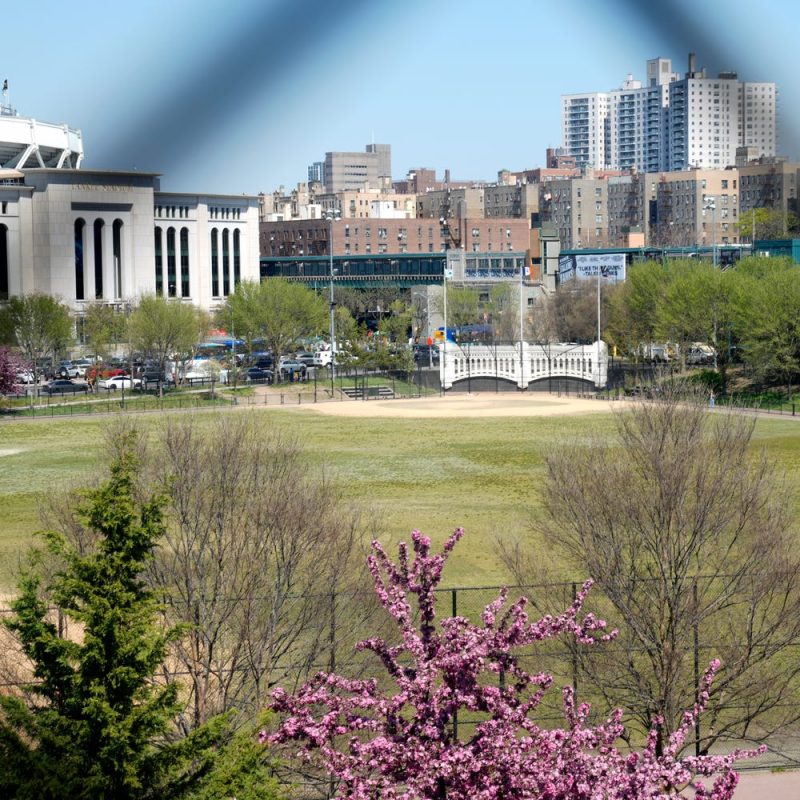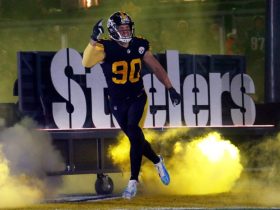NEW YORK — Imagine the excited throngs of people jamming into a brand-new ballpark on Opening Day, and not just any baseball park.
This was the first in the game to be dubbed a ‘stadium,’ and it became baseball’s most famous address and the home of many championship teams.
And when it opened on April 18, 1923, it was in grand fashion, with a 4-1 New York Yankees victory over the Boston Red Sox, and with the stadium’s first home run hit by … who else?
“Babe Ruth’s bat penned baseball history yesterday with a crashing homer in the dedication game of the Yanks at their monster new home in the Bronx,’’ was the New York Daily News’ front page tease the next day, under a photo of Ruth about to cross home plate.
Tuesday is the 100th anniversary of the original Yankee Stadium’s opening. To mark the occasion, fans attending the Yankees’ home game against the Los Angeles Angels will receive a commemorative ticket from the 1923 opener.
Follow every game: Latest MLB Scores and Schedules
Which is fine, but shouldn’t there be … well, something more?
Maybe a bigger way to remember that historic date?
Calling on a Yankees historian
With this thought in mind, the first idea was to call Yankees historian Marty Appel, whose first job was as a mail clerk at Yankee Stadium, answering Mickey Mantle’s fan letters. He has just authored another book, ‘Pinstripes by the Tale,’ a half-century of stories in and around Yankees baseball.
On the subject of marking the 100th anniversary, Appel says sagely that it’s a bit problematic to be “honoring a building that’s not standing anymore.’’
There is nothing really left of the old place, but at least they didn’t put up a massive building or pave over the field’s footprint, which is now a public ballfield.
In essence, the old Stadium of Ruth and Lou Gehrig’s days, and later Joe DiMaggio, Mantle, Whitey Ford and Elston Howard, was demolished after its 50th anniversary in 1973, for construction of the modern version.
And then that version was torn down after the 2008 season for the current structure, across the street.
There was an effort to save one piece of the old structure, Gate 2, which had remained intact from the two-year refurbishing, while the Yankees played the 1974 and 1975 seasons at Shea Stadium.
“I would have liked for them to save Gate 2,’’ Appel says of “a noble idea’’ that ultimately remained just that. The small piece of 1923 Yankee Stadium was bulldozed with the rest of it.
The Yankee Stadium of 1923
One hundred years ago Tuesday, Yankee Stadium opened to an estimated crowd of 65,000 fans.
They heard John Philip Sousa’s Seventh Regiment Band play as the Yankees and Red Sox marched out to the center-field flagpole, where the Yankees’ 1922 American League pennant flag was raised after the American flag went up.
It was the age of Prohibition, so ‘near beer’ was sold along with the hot dogs and pretzels. Gov. Al Smith, Commissioner Kenesaw Mountain Landis and New York Mayor John Hylan were in the crowd.
Those seeking additional forms of entertainment after the game could take a nickel subway ride back to Manhattan and catch a vaudeville revue or see the ‘Ziegfeld Follies’ at the New Amsterdam Theatre.
‘The House That Ruth Built’
Fifty years later, on Opening Day 1973 at Yankee Stadium, the Yankees gave out replica programs from the 1923 opener, complete with the advertisements — 50 ‘Bull’ Durham tobacco cigarettes cost 10 cents.
Bob Shawkey, who pitched a complete-game win for the Yanks in the 1923 opener, threw out the ceremonial first pitch in ’73, and Whitey Witt — the Yankees’ first batter at the Stadium — was at home plate.
Yankee Stadium became known as “The House That Ruth Built,’’ but as Appel once wrote, it was first the home that Yankees owner Col. Jacob Ruppert envisioned and turned into reality.
Not long after the 1919 fixed World Series scandal rocked the game, Ruppert “saw baseball growing from its smallness and would be the first to be ready to handle its new popularity,’’ Appel wrote.
Today’s Yankee Stadium
The current Yankee Stadium’s capacity is a non-colossal 46,537. The exterior is grand, and the field evokes the old park, with the shorter right-field distance and the wider — but not nearly as wide as in the old days — left-center field.
“I’m good with it,’’ says Appel, “still feeling Joe and the Babe’’ and all the Yankees history when he’s at the park. They did have the good sense to return the famous frieze around the stadium.
But when I say to Appel that it sometimes feels like we’re in exile, across the street from the real Stadium site, he doesn’t hesitate.
“Someday when they move back there and turn the current site into a parking lot, we’ll really appreciate it.’’






